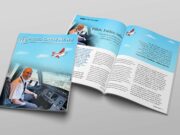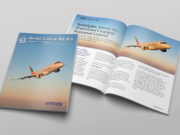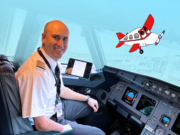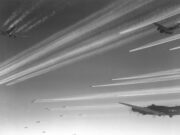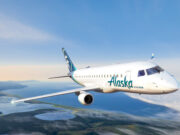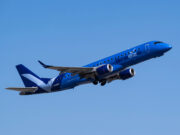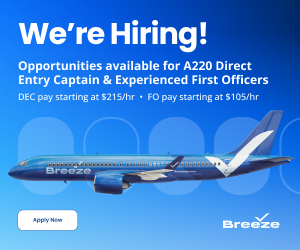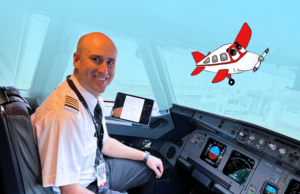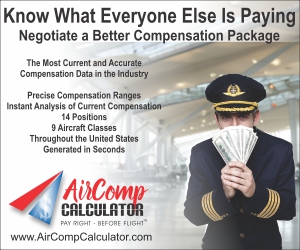Let’s face it, obtaining an Airline Transport Pilot rating and complying with the new Federal Aviation Regulations 117 rules along with attaining a college education isn’t easy or cheap. I akin it to becoming a Medical Doctor or ESQ in today’s business market, as we attend at least four years of college then spend on average two years specializing in aviation. We spend many long days and nights flying, building our ratings to eventually become a Certified Flight Instructor. Then we slug it away training new students to build enough time before we even become eligible for a restricted ATP or full ATP.
I would like to share my experience on how I came to the same result without all of the debt. For most people the idea of joining the military is not for them, I encourage you to read with an open mind. I began my journey as a young boy of a military family. Growing up I was always around aircraft following my dad and his career as a C-130 maintenance crew chief and as a result, I had the buzz from a young age. I always dreamed of flying but I only had one uncle that had flown as a military pilot. To top this off none of my immediate family members ever completed college.

At the ripe young age of eighteen, I joined the military and a year after joining I started college. For me, it took a little longer than four years. I eventually graduated with a Bachelor of Science degree in Computer Information Systems Management from The University of Maryland University College in 2000. I earned a degree and left the active duty military with zero college debt and found the time and money to start flying.
Another avenue which seems to be less exploited is the Air National Guard. In my home state you can attend any in state school 100% tuition free up to and including a master’s degree. On top of that, some career fields will pay a bonus and others a G.I. bill kicker which is over and above the free tuition the state is already paying.
If you are a member of the Air or Army National Guard in West Virginia, you are guaranteed a unit pilot interview as a member of the National Guard. Last year they interviewed twelve people and had roughly twenty-five packages submitted. Of the twelve interview slots, four were given to enlisted members in that unit; all were offered a pilot slot. Assuming these individuals pass their medical and security background checks, they will be to attending military pilot training school and fly the aircraft of their unit.
Reserve Officer Training Corps and the Military Academies are other avenues. Let’s face it, not all of us were ready for the Military Academy when we finished high school as I knew I was not. Each of the service Academies only graduates about 3,000 officers per year. Some colleges have ROTC programs and you can transition to military flight school upon graduation. This is not as easy as it sounds and there is no guarantee you will get one of these coveted pilot slots. Hopefully this helps paint a picture of what a great deal the Air National Guard is.
In my unit, if you join at eighteen, work one weekend a month at the base, attend college for four years and while doing so you show others around you that you have a good work ethic, strong moral character and obtained decent grades, the chances are pretty strong you would be invited to a pilot hiring board just as soon as you finished your degree. Once selected you are guaranteed a pilot position at my unit and you will fly a T-6, T-1 and finish with the C-17.

All, while everyone in your military pilot training class is fighting for the highest class ranking and hoping to get the jet of their dreams you know what you will be flying. While other pilots are slugging it out at flight school, towing banners or doing mapping to build time, you will have medical, dental, vision, life insurance a decent salary and building turbine time while you are being paid to learn to fly these great aircraft. That does not sound like such a bad deal.
Do not take my word for it. I encourage you to check out Base Ops on the internet for more information. www.baseops.net/militarypilot/roadtowings.html. You will need to find a guard unit that is near you. Air, Inc. puts out a handbook called “Flying in the Guard and Reserve” by Robert Black. It has almost every Reserve and Guard unit in it. After that, contact a recruiter and make an appointment to speak with them. After your meeting, you need to take the Armed Services Vocational Aptitude Battery. This is broad based test to see where your interests are and where you would best fit. There are many books and software programs you can use to study for this test, i.e. www.asvabtestbank.com. Once you have passed this test, you will need to choose a career and my personal recommendation would be to look for a career in Operations or Maintenance.
Working in Operations or Maintenance will give you an opportunity to see the mission first hand and get to know the pilots. Seeing them regularly will help build a favorable impression of you and when it comes time to interview, you will be more comfortable because you already know the people conducting the interviews.
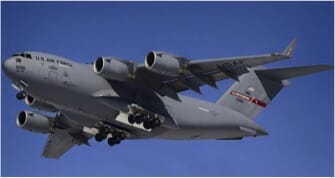 I have a lot of respect for people who have done it the hard way. I feel I have certainly paid my dues and just wish I would have known about the Air National Guard sooner. Let’s face it; getting a restricted ATP at 750 hours with a military background is the fastest way to land a job at a regional airline and move on to a legacy carrier. Ask anyone in the industry if they have ever been laid off. Unfortunately I was, just six months after being hired at a regional airline. The silver lining good news is, generally speaking, if the airlines are furloughing, our government is probably in need of the military’s assistance someplace around the globe. What a great backup plan and what a great way to reach your goals while supporting and defending our great nation!
I have a lot of respect for people who have done it the hard way. I feel I have certainly paid my dues and just wish I would have known about the Air National Guard sooner. Let’s face it; getting a restricted ATP at 750 hours with a military background is the fastest way to land a job at a regional airline and move on to a legacy carrier. Ask anyone in the industry if they have ever been laid off. Unfortunately I was, just six months after being hired at a regional airline. The silver lining good news is, generally speaking, if the airlines are furloughing, our government is probably in need of the military’s assistance someplace around the globe. What a great backup plan and what a great way to reach your goals while supporting and defending our great nation!


